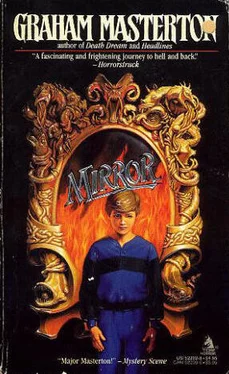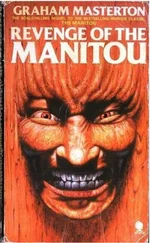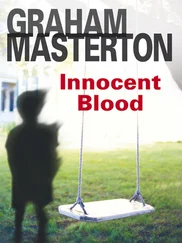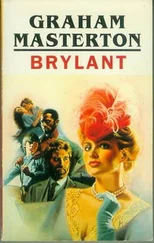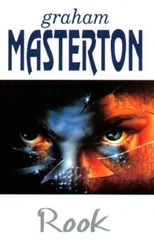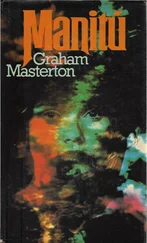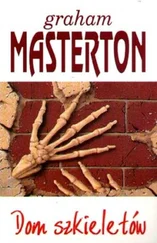'Well, what does he have to be frightened about? He doesn't have to be frightened of me. I can help him. At least, I think I can help him.'
Emilio shook his head. 'He says he's frightened.' 'All right,' said Martin, and stood up. He looked toward the mirror and wondered if the real boy was listening to them. 'But if that boy really is who I think he is - and if he's gotten himself trapped inside that mirror or something — for whatever reason - and he's frightened - well, I'm sure that I can find some way to help him — because I know more about him than he knows about himself.'
Emilio glanced quickly at the mirror, almost furtively, and then asked, 'Can I go now?'
Martin grinned and shrugged. 'Sure you can go. This isn't the third degree.'
Emilio didn't know what he meant but he went, anyway. He was passing the kitchen door, however, when he said, 'Are you going to have him through for dinner?'
'Through?'
'Well, you know, like through the mirror.'
Martin came along the hallway and gave Emilio a pretend Rocky punch. 'You're way ahead of yourself Emilio.'
'But he likes lasagne.'
'He told you that?'
'He likes Swedish meatballs and he likes lasagne and he likes pecan pie.'
'So your grandmother's lasagne won't go to waste?'
'No, sir.'
Martin watched Emilio climb back down the stairs. It was extraordinary how easily children accept the strange and the supernatural, he thought. But maybe this mirror wasn't as strange and as supernatural as it appeared to be. He had read in Popular Radio that mirrors could sometimes pick up radio signals from powerful transmitters, because of their silver backing, and that their glass could vibrate sufficiently to make people hear disembodied voices. Late one night in 1961, in Pasadena, the wife of a grocery-store manager was lying in bed waiting for her husband to come home when her dressing-table mirror began to pick up a live Frank Sinatra interview from Palm Springs. Her husband, coming home late, heard a man's voice in his wife's bedroom, and shot to kill. He wounded his wife and then turned the gun on himself.
He returned to the sitting room and leaned against the mirror with his arms upraised and listened and waited for a long time. No boy. Nothing.
'Walter!' he shouted. 'Boofuls! Come here, Boofuls, let me take a look at you! I'm your biggest fan, Boofuls! Why'n't you step out and give me that sailor's hornpipe, hunh? Come on, Boofuls, I've devoted three years of my life to writing and rewriting about you. Three years - and three complete transfusions of blood and sweat. The least you can give me is a couple of minutes of hornpipe.'
He waited five minutes, ten. Nothing happened. No Boofuls appeared. After a while, Martin turned away from the mirror and looked across at his typewriter. He had some work to do on a Knight Rider teleplay. He might just as well sit down and get to it. Trying to get in touch with boys who lived in mirrors wasn't going to pay the rent.
He switched on his tape player and inserted the sound track of Suwannee Song. Immediately the flutes thrilled and the drums rattled, and the sitting room was filled with the opening march, when Boofuls was strutting like a drum major in front of a regiment of two hundred black minstrels, as they paraded along the levee.
Surrr . .. wannee Song! Suwannee Song! You can blow your flute and you can bang your drum and you can march along!
Martin sat down at his desk, zipped a fresh sheet of paper into his typewriter, and started work on the latest adventures of Michael Knight. He wondered mischievously if Kit the talking car could turn out to be gay: if he could come out of the garage, so to speak.
Surr . .. wannee Song! Suwannee Song!
It's the song, it's the song, it's the song of the South!
He didn't know what it was that caught his eye; what it was that stopped him typing ' What is it, David? Bad guys?' and turn around in his chair and stare intently at the mirror. But the blue and white ball came rolling out from under the table, halfway across the room, to settle there, rocking slightly from side to side before it came completely to rest.
He turned to look at the real room. The ball wasn't there. He switched off his typewriter and walked up to the mirror and stared at the blue and white ball for two or three thoughtful minutes. Then he went back to his desk and opened up the bottom drawer and took out a tennis ball that he had used for practice last summer.
' We have to have two!' the boy had called out. 'If you throw a ball to me, I can throw a ball back to you.'
Martin hesitated for a while, tossing the old gray tennis ball up and down in his hand. Then, without warning, he threw it at the mirror, quite hard, half expecting to break it, half hoping to break it.
There was a sharp smacking sound, and the ball ricocheted off the glass and rolled across the floor. It came to rest only five or six inches away from the toe of his Nike sneakers.
But it wasn't a dingy gray tennis ball. It was a bright new blue and white bouncing ball. And when he turned in shock and looked toward the mirror, he saw his own tennis ball there, in exactly the corresponding place, five or six inches away from his toe.
He picked up the blue and white ball. It was quite hard and smelled strongly of rubber and paint. His mirror image picked up the tennis ball and sniffed that, too.
'My God,' he whispered; and approached the mirror, holding up the blue and white ball until it was touching the mirror's surface. His reflection did the same with the tennis ball, until the two balls apparently touched.
Martin could scarcely believe what he was seeing. He turned the ball this way and that, but it remained, without argument, a blue and white ball, while the ball in the mirror remained the same balding gray tennis ball that he had been punting around last year.
He tried one more experiment. He stepped back, and wound back his arm, and pitched the blue and white ball straight toward the glass. Again, there was a smacking sound; but this time the blue and white ball came bouncing back into the real room.
Martin picked up the blue and white ball, turned it around in his hand, and then set it down on his desk, next to his bronze paperweight of a fin de siecle plume dancer. He sat there and watched it, and then poured himself some wine, and watched it some more.
The sun rotated around the room. Next door, beside the pool, Maria Bocanegra came and went, sunning herself with Sno-Cones to protect her nipples; but Martin didn't bother to get up and look. He couldn't keep his eyes off the blue and white ball.
The day died. He didn't understand it. It was a clear night, the lights were sparkling all the way to Watts.
He slept in his chair. The blue and white ball stayed where it was, unmoving.
CHAPTER THREE
He dreamed that night that he was the smallest of sea creatures, crouched in the tiniest of shells, on a broad moonlit beach.
He could feel the grit. He could taste the salt. He could hear the slow, restless convulsions of the ocean; rocks into stones, stones into pebbles, pebbles into sand, year in and year out, even when there was nobody to listen to it.
He felt the terrible fear of being small and defenseless.
He opened his eyes. He was sweating. It should have been hot, but it was stunningly cold. He shivered. He sat up in bed and his breath smoked. He couldn't decide if he was awake or still asleep - if he was Martin Williams or if he was still a mollusk. He called, 'Hello?' even before he was properly awake.
From the sitting room, he could hear whispered voices: two children sharing secrets. He could see lights flickering, too: cold clinical lights, as if somebody were silently welding.
Читать дальше
